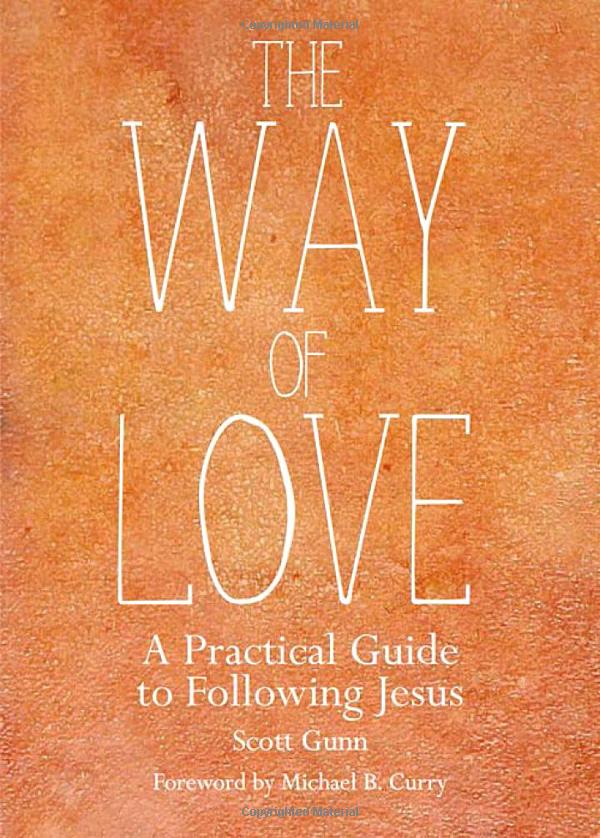Tonight we are discussing chapter 2: “Learn” of the Rev. Scott Gunn’s book: The Way of Love: A Practical Guide to Following Jesus.
In any discussions about learning, the question arises about how do we learn. How do we engage in the study of Scripture? How do we engage in the discovery of Christ? In our discussion tonight, please share your insights into the question. Rev. Gunn gives us four areas in which we can learn.
Read the Bible:
If we want to learn the Bible, we should always start with the primary source itself. An annotated or study bible is best. Rev. Gunn rightly advises that a reading of the Bible should not start with Genesis. The purpose of any study is to know Jesus better. To start reading the Bible, simply read a gospel. Like any good writer, each of the four gospel writers wrote their gospel to tell a coherent story from beginning to end. If you have never read a gospel in one sitting or over one day, I would encourage you to do so. In addition to reading a gospel, read a (short) letter from Paul (preferably one of the “prison letters” – Galatians, Ephesians, Philippians, or Colossians). Again, reading the work in one sitting gives us a better understanding of Paul’s teaching.
In reading the Bible, secondary materials can better help us understand what we are reading. Whenever we have a bible study on Tuesday nights, I generally provide a list of these secondary materials. For the Old Testament, two good books are James Kugel’s How to Read the Bible and Abraham Heschel’s The Prophets. For the New Testament, the best secondary source is the various volumes of N.T. Wrights New Testament for Everyone. A more in-depth commentary is Ben Witherington’s Socio-Rhetorical Commentaries.
If you do want to read through the bible itself, a great resource is Forward Movement’s The Bible Challenge which will allow you to read the complete Bible in a year. Another resource is the Daily Office readings beginning on page 934 of the Book of Common Prayer or on The Lectionary website.
Daily Devotionals:
Another good place to learn is through daily devotionals. Again, Forward Movement publishes “Forward Day by Day” which is available in print in most Episcopal Churches, including Messiah, and is available online where you can either read or listen. For me, I try to find a book with short chapters or a few blogs I like to visit. Currently, I am reading a passage a day from either Hans Urs von Balthasar’s Fire & Spirit or David Bently Hart’s The Doors of the Sea. The three blogs I regularly read are Electic Orthodoxy, Experimental Theology, and Glory to God for All Things. Many of our lessons over the past several years have originated here.
Classes:
The third area of learning that Rev. Gunn lists are classes. This is Tuesday night. There are also various online classes available. The Episcopal Church recommends Church Next as an online learning resource.
Books:
The final way to learn is through reading books. On Tuesday night, I try to use a mix of books primarily either apologetics (C.S. Lewis, Athanasius) or contemplative (Richard Rohr, Thomas a Kempis). Books provide us with a framework and a perspective on how we read, learn, mark, and inwardly digest both Scriptures and our encounter with God, and help us to live out that which we have learned. For Lent, I read James Cone’s The Cross and the Lynching Tree.
In reading books, however, it is important to not simply read new books (anything written post-Reformation) but also to read old books. In his Introduction to St. Athanasius’s (297-373) “On the Incarnation,” Lewis gives a powerful defense of reading old books rather than new books. I commit his defense to you. For Lewis, old books have two characteristics that new books lack.
First, old books have stood the test of time. There have been Christian writers throughout the ages, but we still read Athanasius, Ambrose, Augustine, or Anselm because the church down through the ages has said these books are worth reading. Whether a particular modern book is good will be unknown for generations.
Most importantly, however, old books have different assumptions and swim in different cultural waters than we do. Lewis writes that “all contemporary writers share to some extent the contemporary outlook – even those, like myself, who seem most opposed to it.” All modern American Christian writings (progressive, fundamentalist, or anything in between) have more in common with each other than they will with any Christian writer before the Reformation. I have a library full of old books if you need a recommendation.
Reflection Questions:
Rev. Gunn ends his chapter on “Learn” with the following questions:
1. When is a time you learned in a way that helped you grow in your faith?
2. What keeps you from learning?
3. What might you do to learn in new ways, more often?
Dinner is at 6. The menu is meatloaf and mashed potatoes. Discussion about 6:45. Hope to see you here!
But as for you, continue in what you have learned and have firmly believed, knowing from whom you learned it 15 and how from childhood you have been acquainted with the sacred writings which are able to instruct you for salvation through faith in Christ Jesus. 2 Timothy 3:14-15.
2 Timothy 3:14-15.

